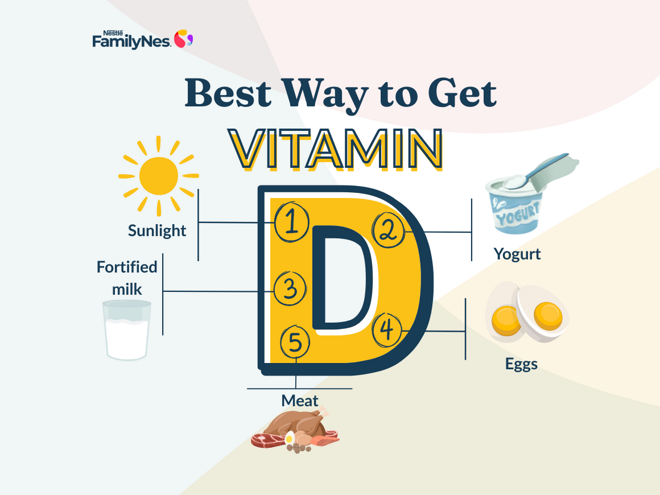
The Role of Vitamin D in Supporting Healthy Bone Growth in Toddlers
Vitamin D is central to a child’s development of strong and healthy bones. It aids calcium absorption, which is required for bone mineralization and strength. Insufficient vitamin D levels predispose children to affected bone development, resulting in weak, soft, or distorted bones. This important nutrient is also involved in the overall growth process and ensures bone strength, which helps in reducing the risk of problems associated with bones later in life. Ensuring a child’s vitamin D status is essential for their growing bodily function and long-term health.
Importance of Vitamin D in the Diets of Your Children
Sunlight is the natural source of vitamin D. With the changing lifestyle, people are spending more time indoors these days and are not exposed to enough sunlight. Thus, it becomes important to fulfill the requirements of Vitamin D through diet.
Children above 4 years of age usually get about 10 micrograms of Vitamin D every day from their food (1). There are not plenty of food sources that are rich in vitamin D; a few of them are meats, dairy products, eggs, and mushrooms. Due to dietary habits and cultural and religious influences, children are less likely to consume such foods regularly. This predisposes them to a high risk of vitamin D deficiency, creating a need to consume vitamin D-fortified milk and foods.
The Best Ways to Get Your Child’s Daily Dose of Vitamin D
- Give your child vitamin D-fortified milk to support an adequate level of daily intake.
- Provide fortified foods, such as cereals and yogurt, and meet the daily requirement of vitamin D in the diet. (2)

Why Fortified Milk/ Foods Matter in Your Children's Diet
Children become selective with their choices as they grow up, so fulfilling their Vitamin D requirements with unfortified meals is difficult. In such circumstances, fortified milk and foods are an appropriate fit.
Fortified milk and foods are a wonderful means of supplying calcium and vitamin D, which are critical to the development of bones and teeth. Giving fortified milk and foods as part of a daily diet along with home-cooked meals would increase the intake of nutrients by the child and support in meeting the nutritional requirements.
References
- nhs.uk [Internet]. 2017 [cited 2025 Mar 11]. Vitamin D. Available from: https://www.nhs.uk/conditions/vitamins-and-minerals/vitamin-d/
- Hennessy Á, Browne F, Kiely M, Walton J, Flynn A. The role of fortified foods and nutritional supplements in increasing vitamin D intake in Irish preschool children. Eur J Nutr. 2017 Apr;56(3):1219–31.

